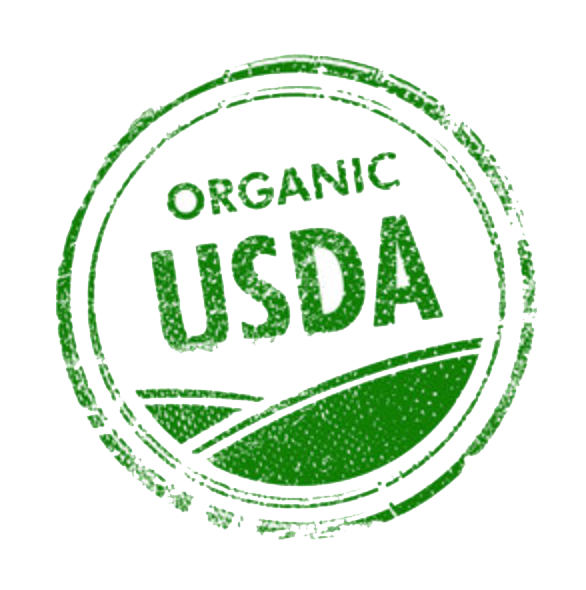
Curious How Probiotics Protect Your Intimate Garden in Summer?
In this passionate summer, sunshine and beaches seem to have become the theme of life, but the accompanying high temperatures and humidity have also led many women to face a not-so-"summer-limited" annoyance — the recurrence of gynecological infections. Let's step into the wonderful world of probiotics together, exploring how they become guardians of our intimate gardens in summer, while also uncovering which summer activities might quietly disrupt their microbial harmony, and how to resist inflammation and bacteria through simple lifestyle habits, especially increasing several exercise methods that are particularly beneficial to women's health.
Probiotics: Guardians of the Intimate Garden
Probiotics, these tiny yet powerful organisms, play a crucial role in the female body. Together with other beneficial bacteria, they settle in the vagina to establish a solid defense line and maintain the microbial balance of the vagina.When this line of defense is strong, pathogens from the outside find it difficult to invade; the vagina's self-cleaning ability is strong, naturally able to effectively resist the invasion of gynecological infections.
Summer Alert: Activities That Easily Lead to Microbiome Imbalance
- Prolonged Swimming: While the cool waters of summer pools offer relief from the heat, the chlorine, bacteria, and secretions left behind by others in the water can potentially infiltrate the vagina through swimwear, disrupting the delicate bacterial balance.
- Tight Clothing: To showcase their figure, many women opt for tight pants or synthetic underwear. However, these garments have poor breathability, leading to a damp and sultry environment in intimate areas, which provides an ideal breeding ground for bacteria.
- Excessive Cleaning: Frequently using chemical-laden douches or soaps to cleanse the external genitalia can actually disturb the vagina's natural acidic environment, resulting in microbial imbalance.
- Unhealthy Dietary Habits: Excessive consumption of high-sugar and spicy foods can affect hormone levels in the body, indirectly impacting vaginal health.
In addition to the aforementioned activities such as prolonged swimming, wearing tight clothing, excessive cleaning, and unhealthy dietary habits, the high temperatures during summer can cause increased sweating, further exacerbating the moisture in intimate areas and elevating the risk of bacterial proliferation.

Anti-Inflammatory Tips: Cultivate Good Habits to Safeguard Intimate Health
- Wise Clothing Choices: Opt for loose-fitting and breathable cotton underwear and clothing to keep your intimate area dry and well-ventilated. After swimming, promptly take a shower and change into clean clothes.
- Gentle Cleansing: Stick to using plain water or mild, non-irritating cleansers to wash your external genitalia. Avoid over-cleansing to prevent disrupting the natural balance.
- Balanced Diet: Incorporate plenty of fruits and vegetables into your diet, and consume probiotic-rich foods like yogurt and fermented products to boost your immune system. Limit your intake of high-sugar and spicy foods.
- Moderate Exercise: Engage in regular physical activity to promote blood circulation and enhance overall body resistance. However, be mindful not to sit or lie down immediately after intense exercise to prevent the risk of ascending bacterial infections.
- Probiotic Supplementation: Under medical guidance, consider taking probiotic supplements in moderation to assist in restoring and maintaining vaginal microbiome balance.
Probiotics protect vaginal health through various mechanisms:
- Balancing the vaginal microbiome: Probiotics like lactobacilli dominate the vaginal environment, maintaining a pH level between 3.5-4.5, creating an acidic barrier that effectively wards off invading pathogens.
- Inhibiting the growth of harmful bacteria: By producing lactic acid, hydrogen peroxide, and other substances, probiotics disrupt the growth conditions of pathogenic bacteria, limiting their proliferation and reducing the risk of infection.
- Boosting vaginal immunity: Probiotics stimulate the activity of immune cells within the vagina, enhancing local immunity and strengthening resistance against pathogens.
- Promoting epithelial cell health: They contribute to maintaining the health of vaginal epithelial cells, preserving the integrity of the vaginal mucosa, and minimizing opportunities for infection.
In summary, probiotics safeguard vaginal health by balancing the vaginal microbiome, inhibiting harmful bacteria, boosting immunity, and promoting epithelial cell health.

Exercise Routines Particularly Beneficial for Gynecological Health:🏃♀️🚴♀️🧘♀️
- Yoga: Yoga not only enhances flexibility and strength but also promotes blood circulation through specific poses, improving blood supply to the pelvic region. For instance, poses like the Butterfly Pose and Cat-Cow Pose help relax the pelvic area, alleviating menstrual discomfort and pain associated with gynecological inflammations.
- Kegel Exercises: This exercise regimen specifically targets pelvic floor muscles by contracting and relaxing them to increase muscle tone. Consistently practicing Kegel exercises can effectively prevent and improve gynecological issues such as urinary incontinence and uterine prolapse, while also enhancing sexual well-being.
- Aerobic Exercise: Aerobic activities like brisk walking and jogging boost overall blood circulation and increase the body's metabolic rate, aiding in the elimination of toxins and waste products. For women, this contributes to optimizing the function of the endocrine system, thereby reducing the incidence of gynecological inflammations.
- Abdominal Massage: Performing abdominal massage during a bath or before bedtime promotes blood circulation in the abdominal area, easing tension in the uterus and ovaries. Additionally, massage stimulates intestinal motility, facilitating the elimination of stool and toxins from the body, maintaining gut health and subsequently supporting the balance of vaginal flora.
In this vibrant summer, let us adopt a scientific attitude and carefully nurture probiotics to become a strong support for our intimate garden, staying away from the troubles of gynecological infections, and enjoying every beautiful moment of summer. Remember, health is the most beautiful scenery. Let's protect this freshness and comfort that belong to us together!

References:
https://pubmed.ncbi.nlm.nih.gov/37286796/
https://pubmed.ncbi.nlm.nih.gov/10847208/
Aagaard K, Riehle K, Ma J, Segata N, Mistretta TA, Coarfa C et al (2012) A metagenomic approach to characterization of the vaginal microbiome signature in pregnancy. PLoS ONE 7(6):e36466 - PubMed - PMC
Anukam KC, Osazuwa EO, Ahonkhai I, Reid G (2006) Lactobacillus vaginal microbiota of women attending a reproductive health care service in Benin city Nigeria. Sex Transm Dis 33(1):59–62 - PubMed - PMC





Dejar un comentario
Este sitio está protegido por hCaptcha y se aplican la Política de privacidad de hCaptcha y los Términos del servicio.